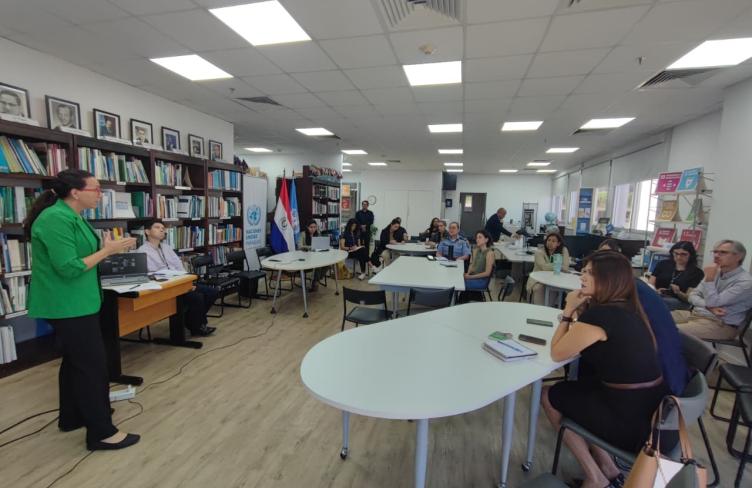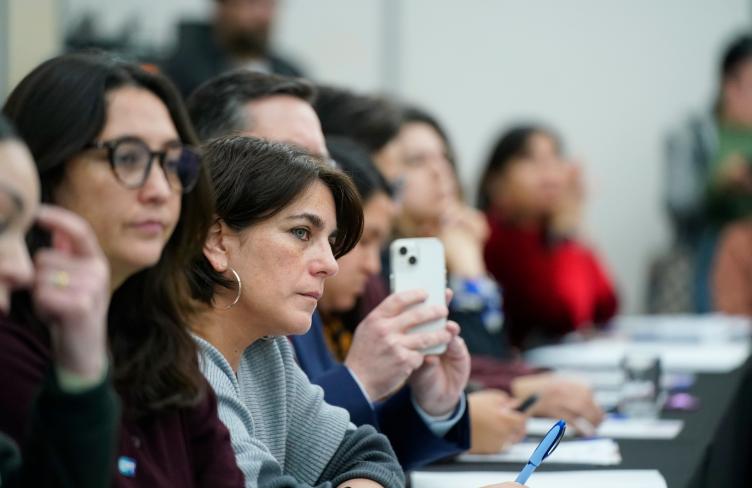
Rondônia, a state in the north of Brazil, has made considerable progress towards the protection of persons deprived of liberty by establishing its own mechanism to prevent torture. The country’s torture prevention system is composed of a National Preventive Mechanism (NPM) at the federal level, and Local Preventive Mechanisms (LPMs) at the state level. The APT, which has been accompanying the process in Rondônia for six years, conducted a workshop to strengthen the capacities and raise awareness of the new LPM.
With the official designation of its members in May, Rondônia’s LPM became operational, following in the steps of Rio de Janeiro and Pernambuco who established their LPMs in 2011 and 2014 respectively. In each state, there is a LPM – responsible for monitoring conditions of people deprived of liberty and making recommendations to improve their protection – as well as a Committee that brings together State and non-State representatives to assist the LPM towards the effective implementation of its recommendations.
Based on good practices and lessons learnt from other Latin American NPMs, the APT provided a three-day workshop on detention monitoring for both members of Rondônia’s LPM and Committee to Prevent Torture. A member of Rio de Janeiro’s LPM and of the Brazilian NPM accompanied the visit to share their respective experience. As part of the training, the APT held a closed session with the LPM only, to address its institutional development, working strategies and procedures, and contribute to the reflection about its strategic priorities and action plan.
Members of Rondônia’s LPM, Ana Valeska Duarte, Adilson de Oliveira Silva and Rose Mary Candido Plans, take part in APT’s workshop on detention monitoring.
Member of Rio de Janeiro’s LPM, Patricia de Oliveira, shares with participants of APT’s training workshop her long experience on how to prepare and conduct monitoring visits to places of deprivation of liberty.
Working session on how to interview a person deprived of liberty during a visit to a place of detention.
The APT also met with high-level authorities – including the Governor, the head of the Public Prosecution Office and the President of the State Court – to highlight the LPM’s fundamental role in influencing state policies for torture prevention. During these meetings, the APT explained the collaborative approach of the LPM mandate. This requires that the authorities examine closely the LPM’s recommendations on possible implementation measures. The APT also insisted on the necessity for the government to guarantee the LPM’s independence and autonomy, including by allocating it the resources and structure necessary to carry out is mandate effectively.
APT´s delegation – comprised of APT´s National Representative for Brazil and members of Rio de Janeiro’s LPM and of the Brazilian NPM – as well as members of the Rondônia LPM and Committee to Prevent Torture meet with the Head of Rondônia’s Public Prosecution Office, Airton Pedro Marin Filho.
Finally, the APT engaged with the local media and organised a public seminar in a federal university, which gathered around 30 participants from various backgrounds. It is important that citizens of Rondônia be aware of the role and functioning of the new torture prevention body.
APT´s National Representative for Brazil’s Sylvia Dias, and Member of the Brazilian NPM, Valdirene Daufemback, are interviewed by channel Record, programme Câmera Mais.
Opening remarks of the public seminar on “Combatting torture and defending the rights of persons under the custody of the State.”
“We warmly welcome the establishment of Rondônia’s LPM, and congratulate civil society and state actors that have been tirelessly advocating for it since the celebration with the Inter-American Court of Human Rights of the Pact* for the Improvement of the Prison System in 2011,” said APT’s National Representative, Sylvia Dias. “The APT hopes that the establishment of the first LPM in the north of Brazil will influence other states in the country to take a firm commitment against torture and establish similar bodies as foreseen by the federal legislation that put in place the National System to Prevent and Combat Torture [NSCPT],” she added.
The APT has been actively accompanying and supporting this process for the past six years, including with an on-site visit in 2016 that led to the approval of the law that created the positions and budget for the establishment of the LPM.
Rondônia made itself known in 2002 following a brutal massacre in one of its main prisons, the Urso Branco Penitentiary, which resulted in the death of at least 27 inmates. Since then, violent killings by rival gangs continued to take place at the penitentiary. The situation was further aggravated by the extreme overcrowding – at times the prison was operating at over twice its approved capacity – a factor known for leading to increased tension and violence among detainees. The severity of the situation led the Inter-American Court of Human Rights (IACHR) to order provisional measures of protection, which were later revoked, in 2011, with the signing of a pact between the IACHR and the State of Brazil to improve conditions of detention. The creation of a LPM was one of the measures accorded in the agreement.
Rondônia has now become the third state in Brazil to have an operational LPM – in compliance with the Optional Protocol to the UN Convention against Torture (OPCAT). Seven other states in Brazil have adopted legislation creating their LPMs. Paraíba and Maranhão are likely become the next states in the country to join the NSCPT, as they are both in the process of designating the members of their future LPM.
For more information about:
- Our work in Brazil, please click here
- Brazil’s implementation of the OPCAT, please visit our OPCAT Database


